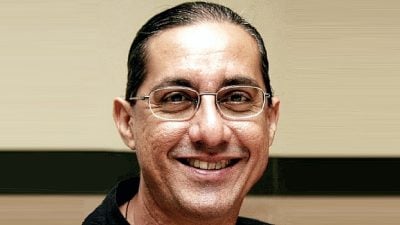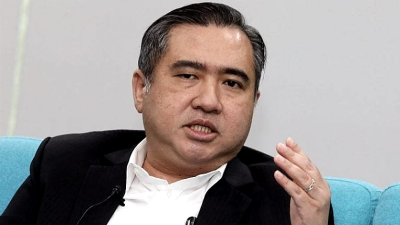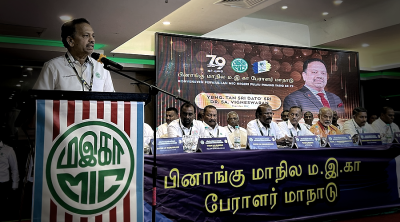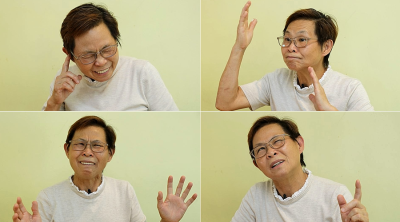
I held back about the state of our national health services (Ministry of Health) because so many individuals have articulated opinions about it.
But the limited solutions currently offered by the government require that we speak up.
In the past 15 to 20 years when we discussed our national health service and people asked my opinion I said our national health services were dying.
Many of us have spoken to senior management in the Ministry of Health (MoH) to tell them about the crisis we are facing on the ground.
Sadly, listening has been poor and no meaningful, concerted action has been taken to rectify the situation.
Hence, we have now come to this place today where our national health services are in crisis.
Those of us who have served for decades in MoH feel heartbroken about the current state of our health services and the lack of adequate care for the public.
What is most distressing is that the solution(s) presented by the government are moving to a fee for service model which is not good for the poor and middle class.
I do not agree with private practice being a model for Health Care.
It is expensive, no longer controlled by doctors but by large corporations, who have a profit motive as their primary goal.
Private health care only serves those who have the money to pay.
I have friends and colleagues in the private sector. Many of them do good work but they are not able to control the fee structure, which is set by private hospitals and large corporations.
Hence my comments here will be about how we can resurrect our national health services.
The recent Rakan KKM ‘Express Lane’ Service announced by the Health Minister is another attempt at a fee-for-service model.
Past fee-for-service-models include enabling MoH specialists to work in practice (part-time private practice), full paying patients, private wing, etc.
All these take away experience and expertise from patients who need them.
They worsen the inequality of care within the national health services.
It is suggested that specialists have extra time to go and work in the Rakan KKM scheme but most of us who serve in MoH have 10-12 hour working days, and this does not include calls.
MoH seems to be unaware of the fact that healthcare professionals in MoH are demoralized and exhausted.
Healthcare professionals in our national health services currently see no future.
I am unsure who is advising our good Health Minister but the advice is poor.
We do not pay taxes so that our national health services can be transitioned into a fee-for-service model or corporatized or whatever term we want to use.
Private Health Insurance (PHI) and Social Health Insurance (SHI) are not good solutions. See the excellent commentary and insightful discussion by Jomo Sundaram and Nazihah Noor.
There are no easy solutions to resurrect our national health services that have been ailing for decades. But perhaps it is important to crystallize what plagues our national health services.
Why have we come to this low place where many specialists want to leave the service? Why do new graduates and young doctors prefer working in other countries or in the private sector rather than MoH?
Why do we have such a poor complement of nursing personnel and allied health care professionals? Why is our hospital and health infrastructure so poor?
One key has been the neglect of our national health service by our governments, those in power for decades.
We have spent too little on health services. But governments of the day have spent lavishly on mega projects.
Preterm babies, ill children and adults have died due to the lack of intensive care services.
The failure to rectify the overcrowded emergency, out-patient and primary care services for decades is testament to the government’s long-standing failure.
The Harapan government promised to “rebuild Malaysia from the rubble of devastation brought about by overlapping crises across multiple sectors such as healthcare….”. But have not lived up to the health promises in their manifesto.
Other key issues are the ‘elephants in the room’ that we seldom want to face. We have institutionalized corruption in our country.
Corrupt practices impact our healthcare system in terms of spending and development.
Meritocracy is lacking in the civil service and this damages the development of health services with a hemorrhage of many good health professionals into the private sector and overseas.
In addition, we have failed to address the quality of training of medical undergraduates, with medical errors and incompetency having risen over the years.
Finally, and by no means a complete list of problems, the MoH has encouraged for decades a disease focus with specialization and sub-specialization, which take up 60 to 70 percent of health resources.
This has resulted in a huge lack of generalists with primary care services having been relatively neglected.
This ‘diseased-focused’ model that MoH has promoted has resulted in a public addicted to curative services.
The cry of the public is for more hospitals nearer their homes, more specialists at their door-step and more quick-fixes for their medical problems.
We have failed to promote health and wellness with a focus on community care as the primary model for our health services.
We have not addressed the worsening social determinants of health, where the poor, disadvantaged and marginalized have the worst access to and quality of health care—they are the ones whose children have the highest mortality and morbidity.
Data suggest that the under five years of age mortality for the B20 community is at least 10 times that of the T20 community.
How do we “rebuild Malaysia from the rubble of devastation” (Harapan Manifesto quote)? How do we move forward?
Firstly, we must admit that we are in a very bad state and have failed. It is not possible to move forward without an honest assessment and public admission of our dire health services crisis.
Secondly let’s take some ideas from the October 2022 Harapan Manifesto, their promises to us at the last elections. Many suggestions are meaningful:
“Healthcare reform must be done immediately before it is too late.”
“Increasing the Public Healthcare Expenditure to 5 percent of Gross Domestic Product (GDP) in 5 years in order to keep up with the national population growth, increase in lifespan, and current needs.”
“Shifting from sick care to healthcare and wellness including addressing social determinants for health such as poverty and preparing health education and equal access to healthcare for all.”
Giving special attention to overcoming the rise of Non Communicable Diseases (NCD) by focusing on primary care, ….”
“… tabulate and monitor the execution of the National Health Reform Plan … “
The national health service delivery reform will cover reduction of waiting periods for procuring health services, modernizing health facilities….”.
“To solve the contract doctors conundrum, … set up a National Health Services Commission to reinforce the management of human resources, staffing, training, and career growth of healthcare staff.”
While the Harapan government has failed to live up to most of these promises over the past two years, nonetheless these ideas are good and we should use them.
We need an increased spending on our public health services with an increased focus on preventive health efforts. And we will need to develop workable solutions to fund this.
I ask the current government to return to their healthcare promises and look back at what they were fighting for just five years ago.
Any meaningful National Health Reform Plan must be fully accessible to the public and involve all Malaysians in its development.
For far too long we have allowed our national health service to decay.
There are no easy fixes, no easy solutions. But I do believe that we can resurrect our health services and keep our healthcare professionals to serve in the public sector.
Basic health is a human right and not one where citizens should have to pay to receive. It is time we work concertedly to end the inequality in healthcare and not be found exacerbating it.
I leave you with a quote from Martin Luther King Jr.:
“Of all the forms of inequality, injustice in health is the most shocking and inhumane.”
(Dato’ Dr Amar-Singh HSS is Consultant Pediatrician and Child-Disability Activist.)
ADVERTISEMENT
ADVERTISEMENT








































